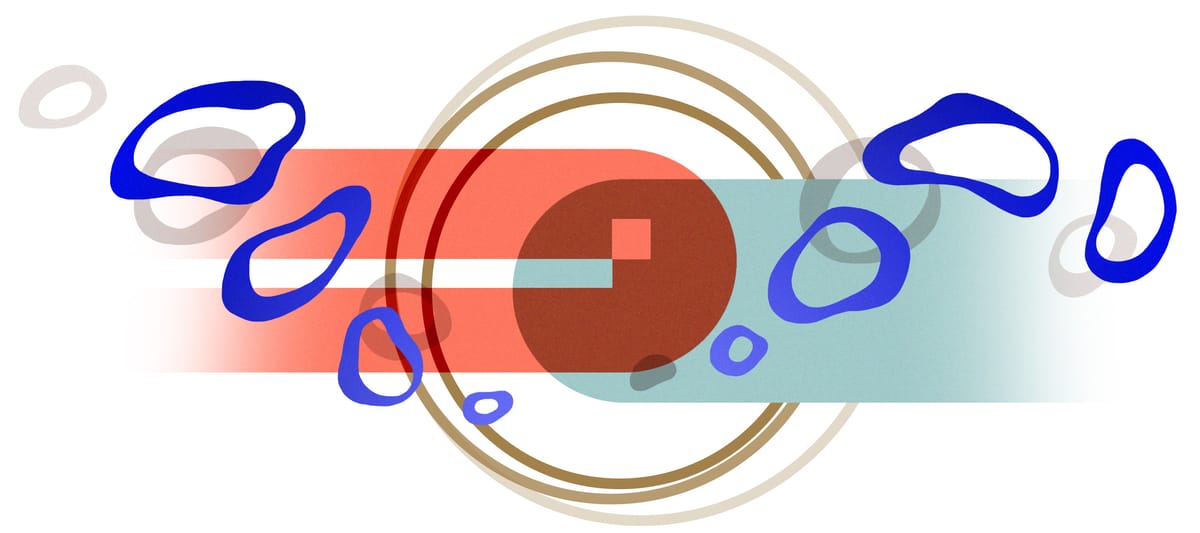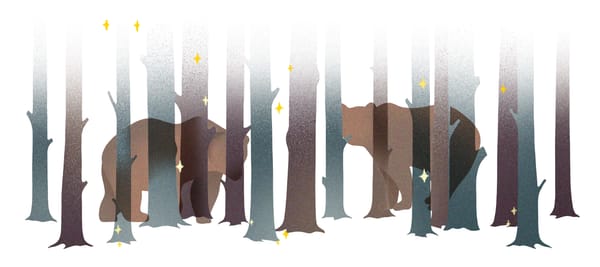Parable
by Matthew Harkins | Strangers on a train.

He stands on the street, checking timetables near the Prague train station. Portly, probably in his late fifties, white shoes, white shirt, and a white suit with a mustard stain on the lapel that will never come out. He catches your eye and reads your clothes, your bag. He needs help deciphering his way. He’s heading to Romania, following God’s will. It is 1995. The communists had kept the people from the Bible, but now he will show them the light. The white suit, he explains with a smile, is to catch their attention, to amplify the power of Christ’s message.
You’re twenty-two, unshaven, midway through a yearlong teaching job in Hungary and heading back in time for Monday’s classes. You’ve just finished nestling pilsner bottles into your bag to give to friends. You hand him your leftover Czech coins, explaining the train to Budapest will take him halfway to Romania. It passes through Slovakia first, you say, where Eurail pass holders like him need to pay an extra fee.
He walks off to buy a sausage at a stall, while you head to the station. Minutes later, he finds you on the platform. He’s prayed, he says, and God has told him to follow you to Hungary for the next steps of his journey.
And suddenly you have become his host. You’ve given him a little cash and advice about an extra fee, and now you feel an uneasy responsibility. He carries nothing but a King James Bible, a tiny bag, and a cosmos of theological certainty. When the train arrives, he settles in the seat across from you. God has always directed me, he confides:
Years ago, I was driving a friend through Texas and the powerful urge to pray came upon me. I closed my eyes and let go of the wheel. I could feel God’s presence, guiding the car through all dangers as my friend and I held hands and prayed and flew through the streets of Dallas. These were miracles and wonders.
Two days from now, you’ll tell your friend Terry the story of this encounter. Terry’s taught English for decades through the British Council—in Spain and China and across eastern Europe. He dislikes missionaries and evangelical assurance. I can’t believe you listened to anything this guy said, he’ll protest. He preyed on your goodwill, inventing stories so that you’d be willing to take care of him.
But sitting in the train, you discern a different truth. He wants you to pray with him, to recognize a God beyond all logic. The suit and story, you suspect, are parables, but the man doesn’t recognize their multivalent meanings.
When the train stops at Bratislava, the conductor checks your tickets. Yours already includes the additional fare for Slovakia; his (though you’d warned him he would need this) does not. The conductor tries in German, then in Czech or Slovak. Neither of you knows those languages, but you both know what he’s saying: the white-suited man needs to pay extra. The conductor begins to realize you share no common tongue. Then suddenly you hear him say pénz, the Hungarian word for money.
Nincs, you reply.
Nincs pénz? he asks, relieved to be getting through.
Nincs pénz, you affirm. There is no money.
The conductor now knows what to do. He grabs your companion’s bag and escorts him from the train.
The white-suited man says nothing, but he searches your face to see what might be there. This isn’t what he expected. He’ll have to start again in Bratislava. Discover God’s new plan.
You stay silent too as he leaves. And you wonder, as the train continues, why you spoke at all. You think about what the two of you owed each other as English speakers, chance companions, ethical human beings. You meant this man no ill, and you’re sure he meant no harm to you.
And the failures of this year, your first one teaching, have made you flinch at the scope of your ignorance—in the classroom, in the department meeting, in the bar. You’ve also seen what exegesis gives and hides, what people do with stories. You realize, on the train, you’re in one now.
A story is a trap, is a window, is a vehicle. Decades from now, you and the white-suited man might see yourselves as figures in a parable. You’ll think about how to gloss the true intentions of these figures, wonder for whom this tale was truly meant.
Matthew Harkins writes and teaches in Minnesota, where he’s a professor of English at the College of Saint Benedict and Saint John’s University. His nonfiction has appeared in Pidgeonholes, Atticus Review, Pithead Chapel, Water-Stone Review, North American Review, and elsewhere. .
This essay first appeared in Allium, A Journal of Poetry and Prose (Spring 2023).
PS/ We’re looking for new flash essays. See the submission call →
Want more like this? Subscribe to Short Reads and get one fresh flash essay—for free—in your inbox every Wednesday.







